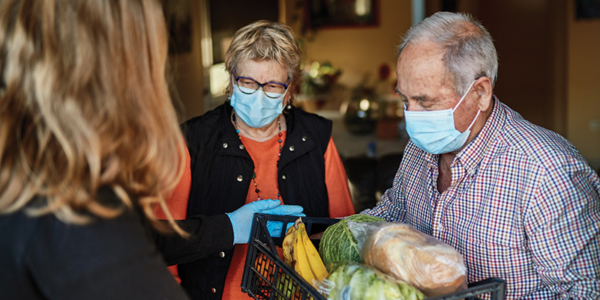Article originally published by Frederick Magazine, July 2020, Charity Cases Feature. For full article, please visit Frederick Magazine.
AN INCREASED NEED
The Mental Health Association (MHA) of Frederick County has seen an increase in need, especially in its call center which is open 24/7. Since the beginning of March, the nonprofit has seen a 23 percent increase over the same period in 2019, according to Shannon Aleshire, chief executive officer.
“When you see an increase, you know that you are needed more than ever,” she says. “Our staff has been working really hard to support one another through this. We have always done that. We work as a team but I really think that knowing the community needs us now more than ever has really kept us going.”
Most of MHA’s programs, including counseling services, have been able to continue just in a virtualized format. “[Going virtual is] not something we would have considered before this, both because there were insurance restrictions in place and we did not think it was a best practice,” Aleshire says. “But it has actually been pretty successful for the people who wanted to participate. That is a personal choice if you want to continue receiving services that way. I hope that when we are not in crisis mode anymore as a nation we can look at a hybrid model and not have to do everything face-to-face in person but give clients that choice as to how they would like to receive services.”
The nonprofit did see a slight increase in donations recently. “A lot of people wanted to rally around nonprofits that were providing essential services,” she says. MHA was one of 65 nonprofits to receive a grant through the COVID-19 Philanthropic Funders Initiative. While grateful for the support, Aleshire worries that level of fundraising will not last. “I just don’t know if that level of fundraising is sustainable within our community for a long-term period of time,” she says. “The virus is going to be around for a long-term period of time. … We will have to seek out additional sources of funding.”
The Catoctin Affair, MHA’s largest fundraiser of the year, was moved from its traditional black-tie dinner format to a virtual setting and performed well after sponsors chose to convert sponsorships into donations. Aleshire notes the nonprofit decided to not cancel the event in order to provide an opportunity to engage the community and the work they do, as well as highlight the businesses and organizations that support them. “They still supported us financially during that time and that was critically important for us to recognize them,” she says.

